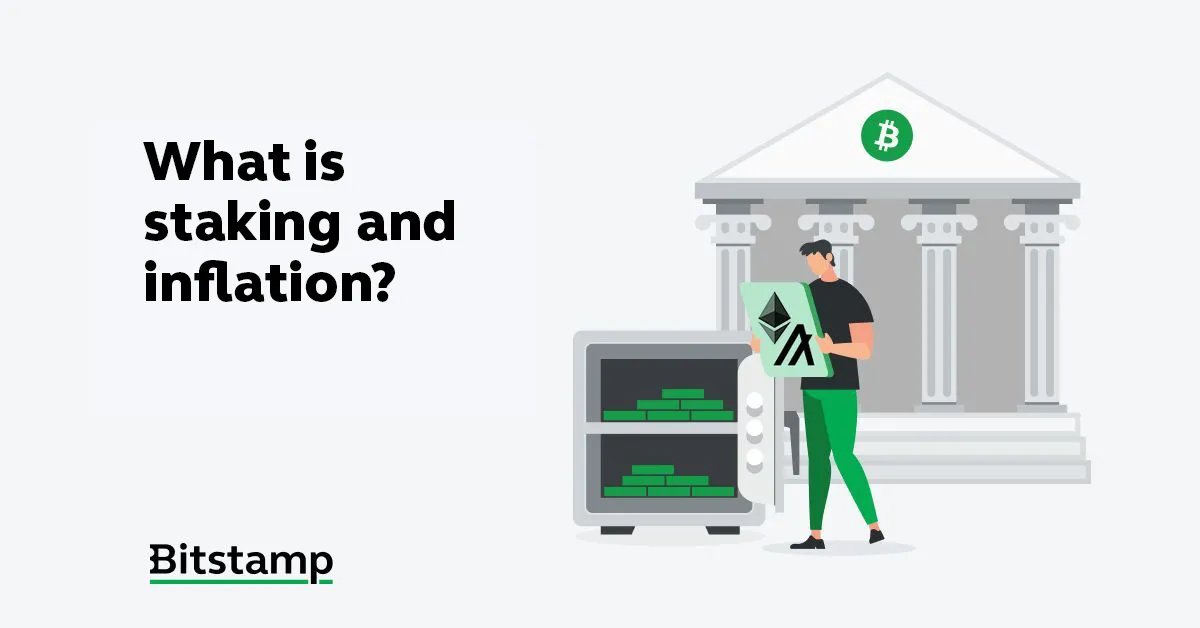What is staking and inflation, and how can you earn crypto rewards with Bitstamp?

Staking is a process through which a crypto holder can contribute to keeping a blockchain secure and be compensated for it. And, as it usually is with crypto, it can be rather complicated for those who are taking their first dive into the world of cryptocurrencies. But that’s why we’re here – to make things easier for you. Let's take a closer look at staking.
Normally when you think about trading crypto, the first thing that pops into your mind is buying crypto on an exchange, such as Bitstamp. But there’s also another option, and once set up, it’s completely passive. We’re talking about staking cryptocurrencies or earning rewards via inflation.
What is proof-of-stake?
Cryptocurrencies are typically built using blockchain technology used to store data and verified transactions on a digital ledger. Depending on the crypto you own, the validation processes is done through Proof of Stake (PoS) for cryptocurrencies like ALGO and, eventually, ETH, or Proof of Work (PoW), used by Bitcoin and Litecoin.
Both processes help crypto networks achieve consensus or confirmation that all the transaction data adds up to what it should. Achieving this, however, requires participants. In the case of PoW, all the validating on the blockchain is done through mining, in other words, using computational power.
Rewards and locking periods
With Proof of Stake cryptocurrencies, users can lock, or stake, their tokens in a smart contract and earn a share of additional tokens for solving computations needed to add new blocks to the blockchain.
Algorand (ALGO) does not have a locking period when staking through Bitstamp. The protocol enables users to earn via a process called inflation, where the protocol determines the rate at which new tokens are added to the network and distributed to those who help secure it. In order to earn ALGO rewards on Bitstamp, all you need to do is purchase and hold ALGO in your account.
Ethereum, on the other hand, is currently going through a set of upgrades that will move the blockchain from a Proof of Work system to a Proof of Stake one. This means that, if you chose to stake Ethereum, your cryptocurrency will remain locked until the upgrade is done. You can read more about Ethereum staking on our FAQ page.
Want to know more about staking and earning? Click here to learn more.
Disclosure: Bitstamp is licensed to engage in virtual currency business activity by the New York State Department of Financial Services.*Annual Percentage Yield (APY) and annual percentage rate (APR) as of 6/2/2022 may change before or after your account is opened. APY and APR are subject to change without notice. Not available to residents of Alabama, Hawaii, Idaho, Louisiana, New Jersey, New York and Nevada. Virtual currency is not legal tender, is not backed by the government, and accounts and value balances are not subject to Federal Deposit Insurance Corporation or Securities Investor Protection Corporation protections.